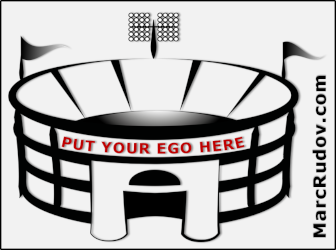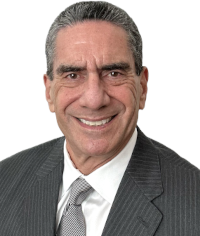 The Golden State Warriors, a championship NBA team in Oakland, California, are in a terrible slump.
The Golden State Warriors, a championship NBA team in Oakland, California, are in a terrible slump.
Steph Curry, the team’s point-guard superstar, just rejoined the roster after missing 11 games from a groin injury. Draymond Green, another star, is out with a toe injury. On Curry’s returning night, despite big hope, the Warriors lost 111-102 to the Detroit Pistons.
In January of this year, JPMorgan Chase, America’s largest bank, won the naming rights to the new arena in San Francisco, where the Warriors will move in 2019 or 2020.
The current, and soon-to-be-abandoned, venue of the Warriors, in Oakland, is called Oracle Arena. If naming rights were a good investment, Oracle Corporation would have fought to name the new arena.
Faulty Logic
Reportedly, Chase will pay the Warriors $15-$20 million per year, for 20 years, to have its corporate logo emblazoned on the new arena.
Why?
The usual “logic”: naming a stadium strengthens a corporation’s brand.
Does it?
First, there’s zero empirical evidence to support that. The same “logic” is applied to funding Super Bowl commercials, which sell no products. Nevertheless, as I detail in Chapter 15 of Brand Is Destiny, CEOs, every year, waste shareholders’ money on Super Bowl TV spots.
After inking the Warriors deal, Chase CMO Kristin Lemkau called the Warriors the “hottest team and one of the hottest brands in sports.” She added, “Our strategy is to have big arena assets that can work for both sports and entertainment in key markets. If ever there were a city and a team we would aspire to, it would be San Francisco and the Warriors.”
What happens when a vaunted team is in a slump, as the Warriors are as of this writing?
Even when an embattled team snaps out of its slump, as the Warriors inevitably will, other players will get hurt — and even leave the team or retire. Do corporations really believe any athletic team will be on top forever? Is any corporation on top forever?
Second, branding is not about awareness; it’s about connection.
People are aware of many names of companies and products, but such awareness doesn’t motivate them to purchase anything. People are aware that they should exercise regularly and eat properly, yet almost 75 percent of American men and more than 60 percent of women are obese or overweight.
Awareness does not stimulate action.
Many times, I’ve discussed the idiocy of GEICO commercials with friends and colleagues (GEICO has an awareness strategy — which is why you see the spots 100 times every day). The usual reaction I get is, “Oh, those commercials make me laugh.” Then, I ask them if they’re GEICO customers. I’ve yet to hear, “yes.”
Ego & Bragging Rights
So, what’s the real reason that CEOs make 20-year commitments to pay big bucks to name stadiums and arenas? Ego. Bragging rights.
Per Sports Business Daily and other sources, here are some top naming-rights deals:

Sports Marketing Analytics (SBRnet) studied this issue and discovered — surprise (not) — that at least half of NFL, NBA, and MLB fans don’t care about stadium names.
Translation: All that shareholder dough paid for awareness is wasted.
Darren Rovell, who has been with ESPN and CNBC, said this about the ability of naming rights to persuade fans to buy the underlying products and services: “It’s a step that not a single company that has ever landed naming rights has ever accomplished.”
Parting Advice to CEOs
There’s only one reason to spend money on promotion: to sell products. Naming a stadium doesn’t accomplish that. It’s a waste of shareholders’ capital.
Stop getting stars in your eyes. Stop seeking the limelight. Take your ego out of this asymmetrical equation.
Use your precious capital to beat your competitors, not yourself.
POSTSCRIPT #1: Oracle Wasting $200M to Name Ballpark for San Francisco Giants
POSTSCRIPT #2: Naming Rights for Pittsburgh’s Heinz Field & PNC Park About to Expire
POSTSCRIPT #3: Future of Golden State Warriors in Serious Limbo 06.14.19
POSTSCRIPT #4: Kevin Durant, NBA Superstar, Is Leaving the Warriors 06.26.19
POSTSCRIPT #5: Empower Retirement Wastes Money Renaming Stadium of Denver Broncos
POSTSCRIPT #6: SoFi to Waste $400M on LA Stadium for Rams & Chargers
POSTSCRIPT #7: Super Bowl 54 in 2020 to Be Played in Miami’s Hard Rock ($250M for 18 years) Stadium
POSTSCRIPT #8: Rudov on KDKA Radio to CEOs: Don’t Fund Super Bowl Ads & Name Stadiums (01.29.20)
POSTSCRIPT #9: Acrisure Stadium to Replace Heinz Field for $225 Million Over 15 Years (07.11.22)
© 2018 Marc H. Rudov. All Rights Reserved.
About the Author

Marc Rudov is a branding advisor to CEOs,
producer of MarcRudovTV, and author of four books


